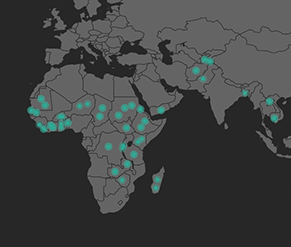Sudan is a lower-middle-income country with a fast-growing population of 41.8 million. The country’s school-aged population accounts for one third of total population and continues to grow, contributing to the increasing demand for basic services - including education.
The acute economic crisis the country experiences, fueled by high inflation and massive currency devaluation, puts Sudan’s children at a high risk of dropping out of school. This risk is echoed by the recent humanitarian appeal issued by OCHA.
A political crisis erupted in recent months, culminating in the removal of the government after nearly 30 years in power. With the help of the international humanitarian community, the new transitional government is making efforts to steer the country out of the crisis while paving the way to restore stability.


